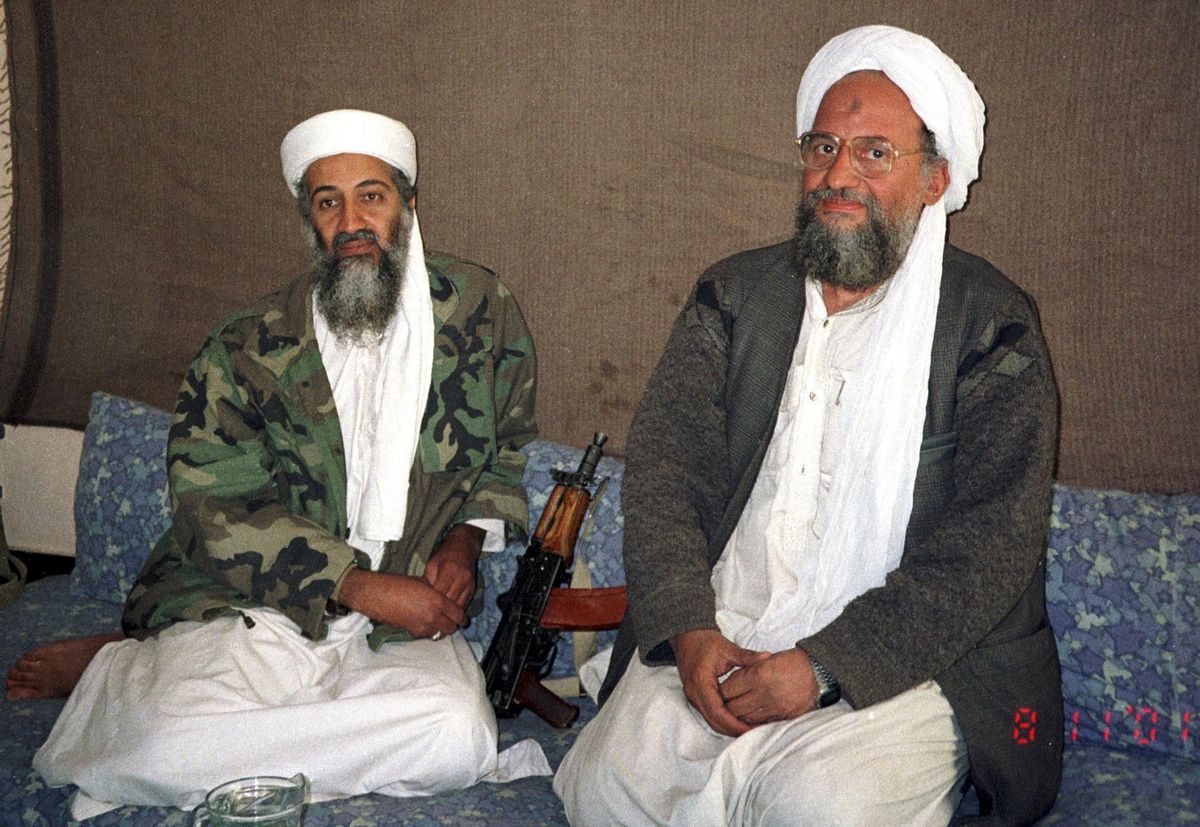US kills al-Qaida leader
President Joe Biden addressed the nation Monday night to make an announcement 21 years in the making: the US killed al-Qaida leader Ayman al-Zawahri in a drone strike in Kabul over the weekend. Osama bin Laden’s right-hand man and key architect in the 9/11 terror attacks was killed in the first US attack in Afghanistan since the American withdrawal last August. The operation – a major counterterrorism coup for Biden – reportedly saw al-Zawahri killed at the home of a staffer to senior Taliban leader Sirajuddin Haqqani. A CIA ground team, with the help of aerial reconnaissance, has confirmed the death. “My hope is that this decisive action will bring one more measure of closure,” Biden told loved ones of 9/11 victims. He also warned that the US “will always remain vigilant … to ensure the safety and security of Americans at home and around the globe.” With al-Qaida franchises having cropped up globally over the past decade, the death of Zawahri – who was wary of the brand’s localization and its effect on his authority – will present a challenge for control of the militant group.
Pelosi Taiwan fallout?
We won’t know whether US House Speaker Nancy Pelosi will visit Taiwan until she lands there or leaves Asia, but US and Taiwanese officials said Monday they expect she will spend a night there. In response, China’s foreign ministry has warned that the People’s Liberation Army “won’t sit by idly” if it decides Pelosi’s visit undermines China’s “territorial integrity.” It’s not that the US and Chinese governments don’t understand the sensitivity of the timing. The Biden administration, which has warned publicly against a Pelosi visit, is well aware that China’s upcoming Party Congress and its importance for President Xi Jinping’s future make this an extraordinarily provocative moment for a Taiwan visit from the highest-ranking US official to go there in 25 years. Beijing understands that in the US system of co-equal branches of government, the House Speaker doesn’t need the president’s permission to visit other countries. They also know that Pelosi probably won’t be speaker much longer, given the outlook for US midterm elections, and that this is probably her last chance to keep a promise to visit Taiwan. Each side understands, but neither Pelosi nor Xi sees a reason to back down. Keep watching this situation closely.
Yemen’s turning point
A four-month UN-sponsored truce is set to expire in Yemen on Tuesday. What happens next remains unclear. More than seven years of war between a government supported by Saudi Arabia and its regional allies on one side and Houthi rebels backed by Iran on the other has created a humanitarian crisis. Some 17 million Yemenis struggle to find food every day, and the war has inflicted so much damage on homes, schools, roads, and hospitals that even if peace takes hold it might take decades to rebuild. If peace does not take hold, beginning with an extension of the expiring truce, it will be because the two sides are still evenly matched militarily and have not surrendered their weapons — and because there is little trust between them.
Tensions rise in Kosovo
Ethnic Serbs living in Kosovo were supposed to switch their Serbian-issued license plates for Kosovan-issued ones this week, but Kosovo’s government has just delayed implementation by a month owing to simmering tensions. Kosovo declared independence from Serbia in 2008, but tens of thousands of ethnic Serbs living there refuse to recognize the country, which Serbia still sees as its province. The new rules were meant to take hold on Monday, but ethnic Serbs have been protesting and barricading roads with tankers and trucks near two border crossings with Serbia. Police in Kosovo also say shots were fired toward them but that no one was hurt. Fears of rising Balkan instability – with the bloody conflict of the 1990s still fresh on everyone’s minds – led to the postponement. The US and EU have called for calm, and the NATO-led “Kfor” peacekeeping mission is "prepared to intervene if stability is jeopardized."


















